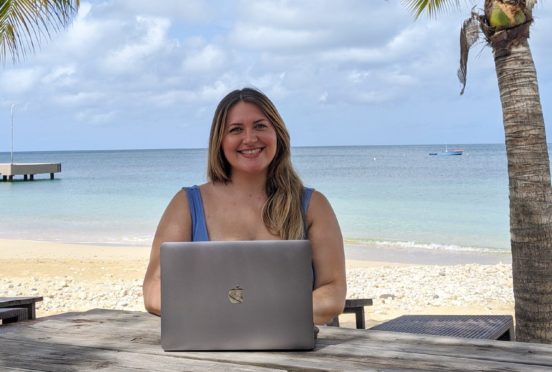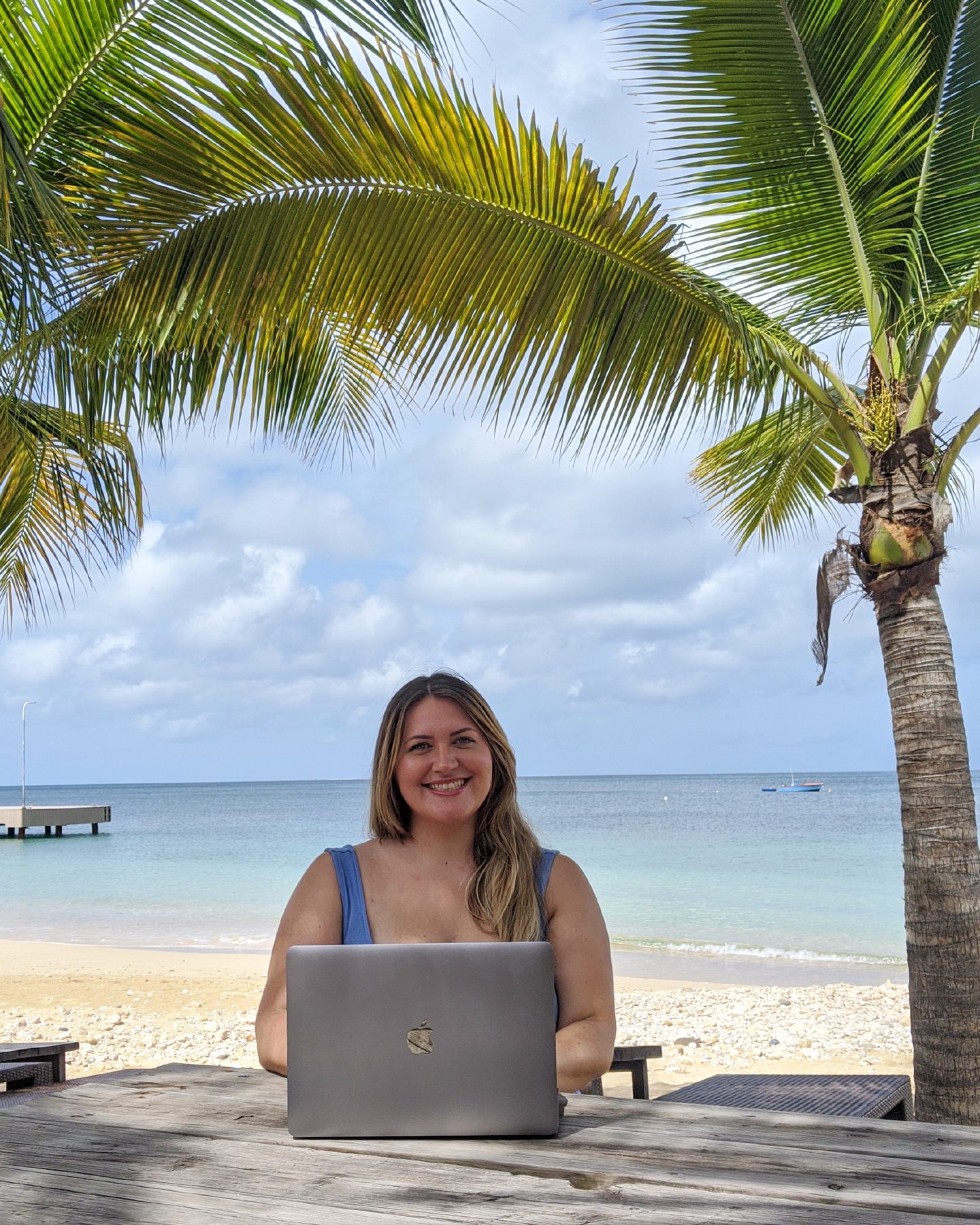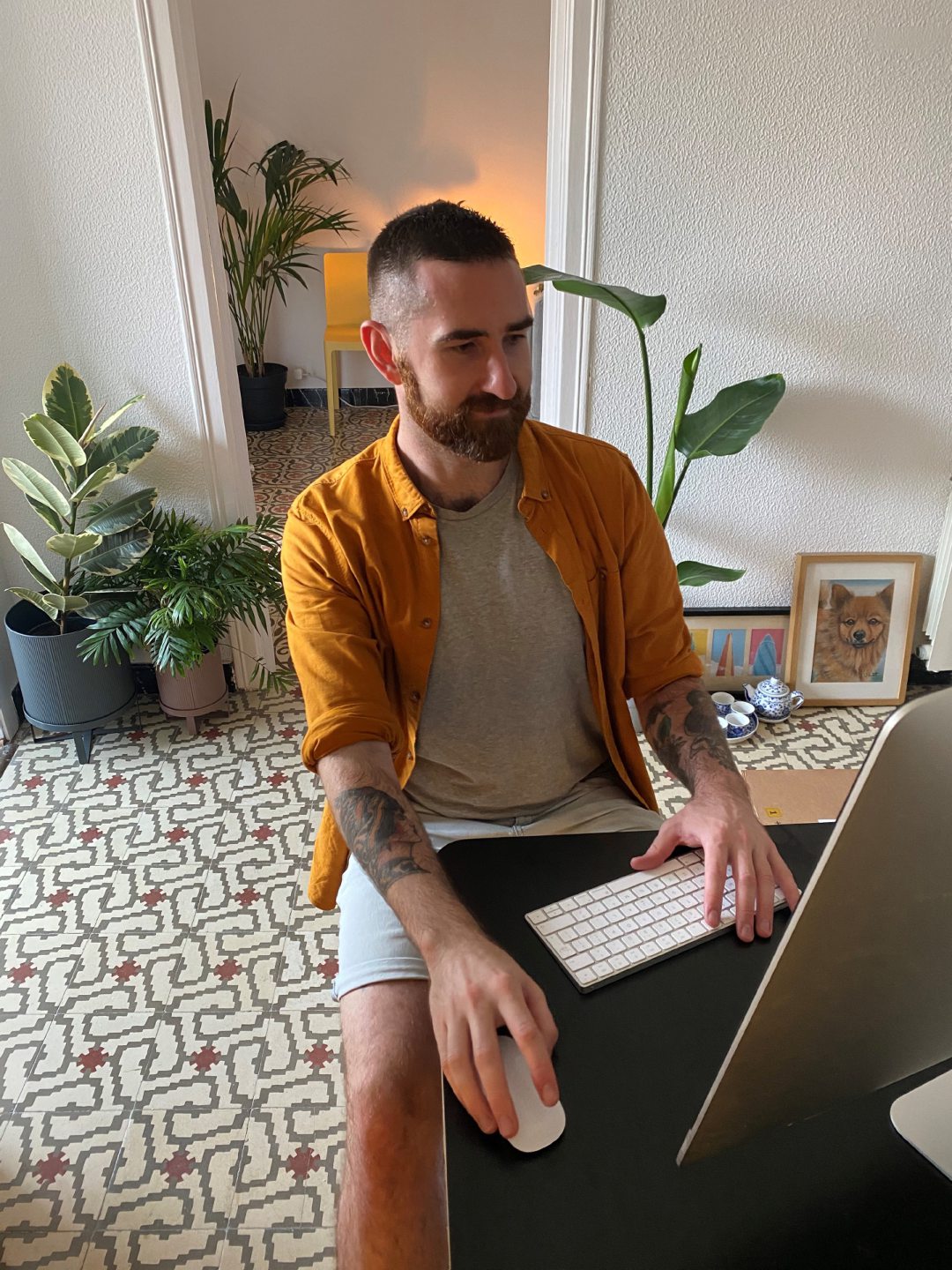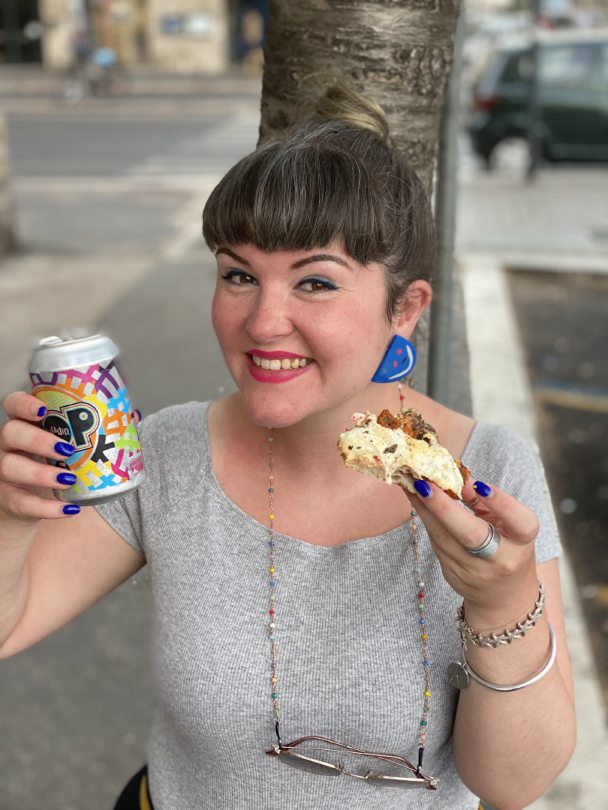
Bosses in Scotland expect the number of staff working remotely to double in the future, according to research by the Chartered Institute of Personnel and Development.
The CIPD survey of more than 1,000 employers shows they believe 37% of staff will be working from home once the coronavirus crisis is over compared to just 16% who did so before lockdown, with 30% of employers stating increased homeworking has boosted productivity or efficiency.
The organisation’s head in Scotland, Lee Ann Panglea, believes this greater commitment to flexible working could pave the way for more workations overseas.
She said: “The pandemic is going to have a long-lasting effect on how we work, with a step change in the proportion of people who work from home on a much more regular basis.
“While our research did not cover remote working outside the UK, we can see anecdotally that this more flexible approach could open doors to more people working overseas. As an organisation we have colleagues working all over the world. It is very much something that we support.”
Countries and cities worldwide are welcoming the move, with some hotels, like Dukes in London’s Mayfair offering “workation packages”.
The Caribbean island of Anguilla is now accepting online applications for visitors to work there for up to a year.
Its Parliamentary Secretary for Tourism Quincia Gumbs-Marie said: “We prioritise people from low-risk countries and longer stay travellers.”
Tourist board chairman Kenroy Herbert added: “There is considerable pent-up demand for Anguilla. We offer a wonderful respite.”
Catherine’s Story:
Zooming in for an 11am business meeting on a wet Scottish autumn day, Catherine Duncan is framed by palm trees, a bleach-white beach and an azure sea.
But this is no fake backdrop. While colleagues in Glasgow and Inverness are swathed in jumpers and scarves, Catherine’s laptop camera captures her bare-shouldered and sun-kissed on the tiny Caribbean island of Anguilla where soft breezes set the palms swaying.
Catherine, 28, from Inverness, is part of a vanguard of young professionals on “workcation”.
That Catherine chose to do so on this tiny island might be because the World Health Organisation declared it to be Covid-free, or because for the last four years it has been voted the best in the Caribbean.
On the other hand, it may be because that at just 16 miles long and three miles wide, and with a population of only 15,000, it is the secret escape of stars such as Harry Styles, Adele, and Beyoncé.
But Catherine’s reason for relocating runs much deeper.
She fell in love with, and recently married, Anguillan national Aaron Duncan, 25, who she met in Glasgow.
The couple have just emerged from a two-week quarantine on the island from where Catherine told The Sunday Post: “This island has 33 beaches, white sand and an azure sea. It is ridiculously beautiful. The nearest beach is only five minutes away from Aaron’s family home where we are staying until we get our own place.
“Yesterday morning we went for a swim at 6am as the sun was rising. Because the island doesn’t have any Covid, everyone is having fun and I can sit under a palm tree with my laptop and work. It is heaven on Earth.”
Catherine, who is employed by Glasgow and Inverness-based Dynam Marketing and Design, where she specialises in audience mapping and digital platform analytics, met Aaron, who was studying for a BSc in Real Estate at Glasgow Caledonian University.
They quickly fell in love but knew that Aaron, who was studying on an Anguillan Government scholarship, would have to return to the island after graduation to work.
They had anticipated a long-distance relationship but when coronavirus hit and Aaron
prepared to be repatriated they decided they did not want to be parted with no idea of when they could be together again.
Less than two months later on August 17 in Inverness – with special dispensation from city’s registrar – they were married.
Catherine said: “I was nervous about telling Dynam of our plans. I didn’t want to leave the company, but they said we would make it work. And it does. Connectivity here is good and most of my clients are across different time zones anyway.
“I can do everything I did in Glasgow and Inverness in Anguilla. Because it is five hours behind the UK I miss three hours with my colleagues in the morning, but am still working with them for five. I have that extra time in the evenings to tie up loose ends.
“We have an online coffee morning on Wednesdays and an online payday drinks party. For the next one I plan to be on the beach to make everyone jealous,” she laughed.
Dynam’s joint managing director, Eleanor Neilson, said: “When Catherine told me that she would be moving to Anguilla I was initially gutted. She had become an integral and valued member of the marketing team and we didn’t want to lose her. The time difference wasn’t insurmountable.
“Throughout lockdown, it became even clearer that we could make this work as we’ve all had to make changes to our normal working practices. Since Catherine’s move, the arrangements so far have felt seamless.
“The only downside could be when the clocks change and winter sets in and Catherine is basking in the Caribbean sunshine. Dynam will be on the first plane out there to join her!”
A timeline of Catherine’s day in Anguilla:
6am – walk five minutes to sunkissed Sandy Ground beach for a dip in the Caribbean sea, it’s in the East end of the island so I watch the sun rise as I start my swim
7am – Log on to read emails and online meeting with the rest of the marketing team, work (never the same day as my clients vary)
9am – Grab bowl of fruit, locally grown in Aaron’s auntie’s garden – a mixture of mango, papaya and pomme surettes topped with some greek yoghurt.
9.10am – work (never the same day as my clients vary)
1pm – Lunch, head down to one of the local beach restaurants for some freshly caught red snapper, served up with a beautiful salad
2pm – back to work (never the same day as my clients vary)
3pm – finish on time
5pm – Aaron and I head down to a beach bar on the West End of the island to soak up the evening sun, listening to local musicians play live as I sip on a mango daiquiri.
Kevin’s Story:
Kevin Mclean, 32, from Kinross, is a senior designer, with London-based Studio-XAG who provide 3-D design for leading retailers like Calvin Klein and Mont Blanc who have stores all over the world. He has just this week moved from London to Barcelona with his Spanish partner of five years, contemporary dancer Jordi- Calpe-Serrats, 35, who, since the closure of theatres because of Covid-19 has been teaching for the Conservatoire in London online.
Kevin said: “We wanted a change of pace of life and to get some sun. About a year ago at my last review I mentioned to my employers that we were planning to go to Barcelona and wanted to give them the heads-up. I thought I would have to find a new job but they were keen to keep me.
“The coronavirus, as awful has it has been, has been good from a work perspective because it has proven that homeworking is so do-able. It is super-manageable for us to work on projects remotely, so that helped to alleviate any worries from their side. We were already working remotely so it didn’t matter where we were.”
He loves the lifestyle change. He said: “In the morning I can go for a run, then go to the beach for a swim before we even start work. It is lovely to be able to that. Lunch here is huge and longer, dinner is later. The food is so good it’s insane.” Some of his friends had already made the jump and many more are following suit promted by Brexit and Covid-19. He said: “It felt like London was losing a lot of people when we left. Our friends went to Vienna, Ireland and Geneva. It has been a growing trend.”
Kirsty’s Story:
Kirsty Cameron, 34, from the Borders, works in marketing for Edinburgh-based pizza oven company Ooni. She is on “workation” in Naples with her university researcher boyfriend Adam Collin, 35, from Haddington, who is based there.
Kirsty, from Greenlaw, said: “I told my employer I’d like to go and work in Naples. They were super about it and it has given me an opportunity to make good contacts for the company.
“Because of the long balmy evenings, we go out instead of sitting in front of the TV. The Italians respect work is work but also that social time is social time.
“You do not have to be in an office to make work for you and I feel more connected to my colleagues, even though I am not physically in an office with them.”
Working abroad isn’t always plain sailing
Dr Lorna Philip
The world could become a coronavirus-induced oyster for young professionals wanting to “workation” overseas, according to a connectivity expert.
Aberdeen University’s Dr Lorna Philip, who was part of the Westminster Scottish affairs committee’s 2018 inquiry into digital connectivity
in Scotland, said: “Covid-19 has been a massive stimulus for people working in a different way.
“Because we had no alternative, many employers worked out pretty quickly that their staff could work effectively out of office.
“So perhaps any lingering fears that people wouldn’t be productive or able to collaborate have been laid to rest.”
She added: “A lot of people saw not being tied to a physical workplace as a marvellous opportunity.
“The idea of being able to go overseas or perhaps go to a second home, or to family members and work from there, is something people have been able to do – as long as their internet connectivity is OK and they can accommodate time differences.
“In principle, this is something many could do going forward. Perhaps it gives people the opportunity to do the travel they have always wanted to do without taking the risk
of giving up a job, if they are allowed to do this work remotely.”
However, she pointed out that remote working was not suitable for all jobs with many requiring personnel in situ.
Other potential “blockers” included possible taxation issues, internet and data
security, and residency permits in the host countries involved.
The implications of Brexit, too, could make travel less easy for UK workers in future.
According to Dr Philip, senior lecturer in human geography and depute head of the university’s school of geosciences, employers and their employees have much to consider before taking the leap.

Enjoy the convenience of having The Sunday Post delivered as a digital ePaper straight to your smartphone, tablet or computer.
Subscribe for only £5.49 a month and enjoy all the benefits of the printed paper as a digital replica.
Subscribe © SYSTEM
© SYSTEM © SYSTEM
© SYSTEM © SYSTEM
© SYSTEM